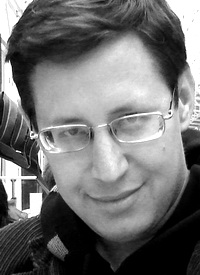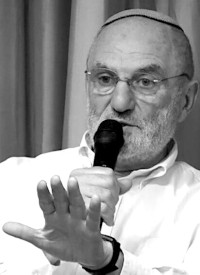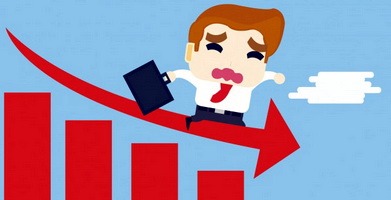
The coronavirus pandemic has so far taken four lives in Ukraine, but immediately provoked an unprecedented crisis, which is increasingly dragging the country in its wake. Total quarantine, the introduction of an emergency regime and the shutdown of public transport have paralyzed the lives of millions of people, halted production, and brought medium and small businesses to the brink of ruin. Whatever the outcome of the coronavirus story, its consequences have already taken on historical proportions -- at least in their socio-economic dimension.
Society is in shock-- most Ukrainian citizens do not know whether they will have basic means of subsistence tomorrow -- work, salary, housing, food, medicine. The rate of the hryvnia is falling, prices in supermarkets and stores are growing steadily. And people often cannot leave their city or district to skimp somewhere cheaper, earn a penny or get supplies from rural relatives -- that is, they are deprived of the basic social mobility that allowed them to “twist” earlier, somehow surviving in difficult times.
All this is superimposed on panic and attacks of socialpsychoses. These collective borderline conditions are exacerbated not only by fear of the unknown and the disease, but also by a chronic distrust of the authorities. It is quite justified -- since the leaders of the Ukrainian state demonstrate in this situation almost caricatured managerial incompetence. They did not take the simplest and most necessary sanitary-epidemiological control measures in time, allowing almost a thousand tons of medical masks to be taken abroad, fabulously enriching high-profile speculators. But, at the same time, they are more and more inclined to hasty and voluntaristic decisions -- clearly sensing the opportunity to completely curtail the rights and freedoms of citizens.
Now it’s already obvious -- in case of a crisis, politicians plan to control the country in an authoritarian way, relying on the National Guard, the police, the Armed Forces and ultra-right groups, one of which is officially assigned to oversee the implementation of the emergency regime in the capital. This seriously increases the political actions of contenders for the role of a "strong hand," like head of the Ministry of Internal Affairs Arsen Avakov, who has influence on the official power structures and the nationalist “volunteer” formations. But even such a force may well triumph under the hypothetical conditions of the collapse of state structures and social chaos. Especially since the country is locked down, turning into a tightly closed cauldron simmering over a crisis. And the country can no longer be left in search of a better life -- as was done by those who have returned from abroad today.
However, the matter is no longer only about closed borders -- even worse is that behind the newly materialized Schengen barrier there is no longer any better life for outsiders and strangers. And the situation of the inhabitants of Ukraine is of the least interest to their hypocritical friends from the developed countries, who are now focused on their own problems, leaving Kiev to fight for salvation alone. And they do not show solidarity even to each other, banally stealing medical masks, brought from China for Italians.
Obviously, under these conditions Ukraine simply cannot afford to continue the war, which destroyed it even without the threat of coronavirus. However, it was not a disaster for everyone. The conflict in the Donbass isofgreatimportance for the political class of the country -- since all its representatives live at its expense, from hateful bloggers to the richest oligarch, who routinely grow richer due to the "Rotterdam" schemes. The sluggish war in the east, now in its seventh year, serves as a way of life for the regime formed after the victory of the Euromaidan. It not only feeds the elites that have developed during this time, who have mastered all forty shades of gray, black and bloody business in the war, profiting from other people's grief and economic degradation. The war gives the authorities much more, legitimizing their control over an eternally belligerent and constantly impoverished state. After all, all the troubles of Ukraine were attributed to the endless reflection of aggression. And opposition forces, capable of organizing the population for effective social protest, were preventively cleaned up as part of the fight against the mythical “fifth column” of the enemy.
But there are no more financial and organizational resources for the war, which will need to be used to fight against the modern version of the plague. There is a shortage of essentials -- even food for soldiers. “Due to the coronavirus epidemic, which has caused the refusal to sign contracts by business entities providing food services in military units, a critical situation may arise in the Armed Forces of Ukraine with ensuring uninterrupted nutrition,” the President’s Office said in a document published today by the media.
The crisis provoked by the conflict has long weakened the immune system of society -- it has become a chronically ill organism infected with the viruses of poverty, crime, violence and corruption. And it’s simply not able to give an adequate response to the serious challenge that Ukraine faces these days. Finally, war has always been a major factor in the development of social diseases, which spread easily in an unstable front-line environment, ascanbeclearlyseen in the ATO zone, where there has been an increased number of cases of infection with tuberculosis, HIV and various types of hepatitis.
“This is a disaster, because it is clear that some of the soldiers are ‘tearing off the roof’ -- where there is alcohol, there is unprotected sex -- and the sex industry is flourishing in this area. There are prostitutes from the local population, it’s actually like a biological war, because they are HIV-positive, with hepatitis, and the guys have unprotected sex with them ... Unfortunately, there is also the phenomenon of sex tourism. Girls are going to the Anti-Terrorist Operation zone ‘to provide patriotic assistance,’” the deputy head of the Military Medical Academy for Clinical Work, Colonel of the Medical Service Vladimir Steblyuk, said in an interview.
“The fighting in the Donbass and the concentration of tens of thousands of people at the front is a potential hotbed for the spread of the epidemic. Contrary to the cheerful statements of the leadership of the Ministry of Defense, in the field or in the barracks there is no need to talk about any quarantine. The spring appeal has already been suspended. Therefore, the issue of establishing a long ceasefire becomes a matter of life and death for tens of thousands of military personnel and millions of residents of Donbass ... Wars and epidemics have always gone hand in hand through the pages of world history, and armies were the carriers of infections. It is not for nothing that these two phenomena, together with hunger and death, are called the four horsemen of the Apocalypse,” Kiev historian Yuriy Latysh rightly recalls.
And indeed, history teaches us that war and epidemic are two siblings, together engaged in the destruction of humanity. Their terrible tandem has manifested itself many times. Suffice it to recall the “Black Death” that spread along Eurasia along with the Tumens of the Mongol army -- first to China, where 90 percent of the population of Henan province died of the plague, and then to Europe, which lost about half of its inhabitants as a result of this pandemic. The Italian Gabriel de Mussi left us a description of the siege of present-day Theodosia -- the then-Genoese colony of Kafa, which the Golden Horde of Janibek Khan tried to take. Pestilence began in the Mongol army, which spread to the defenders of the fortress -- and soon the plague hit ships from Crimea to Italy, which led to the worst catastrophe in European history.
Another such catastrophe was the First World War -- and a significant number of its victims were also taken not by bullets, but by epidemics that developed in unsanitary conditions and crowding of human masses. Typhoid, tuberculosis and cholera were widespread. But the most terrible tribute was collected by the famous "Spanish influenza," which originated in the U.S. military camp at Fort Riley, based on the common strains of flu imported with Chinese workers. Influenza entered Europe with American recruits, and for several years killed soldiers in the trenches of all the warring countries which did not report the epidemic due to restrictions of military censorship. So the deadly flu got its name from neutral Spain, where the authorities first spoke about it publicly.
This lesson is well known throughout the world. And it is not surprising that the new pandemic has strengthened anti-militarist sentiments -- against the backdrop of the moral bankruptcy of the largest, best-equipped armies of Europe and the United States, which showed ineptitude in the fight against coronavirus.
“Through all of this, NATO and other Western soldiers are constantly conducting exercises, bragging about floating super-hospitals, and receiving exorbitant budgets. But where are they now? In a number of countries in Western Europe, it has already reached the point of medical sorting. Doctors directly speak about tactics that are used in war. But where is at least one field hospital set up? Why in Italy do we see doctors from Cuba and China, but we don’t see a single NATO member, even with a humanitarian mission, such as transporting food? With an international budget of $2.5 billion, the alliance is only capable of remote killing with drones. The function of the army was reduced to the conduct of imperialist wars so that the most powerful armies in the world simply atrophied in their ability to carry out humanitarian missions. The Covid-19 pandemic raises many questions. The elimination of NATO is one of the most important. Self-isolation is a good opportunity to think about the bigger world,” writes Ukrainian blogger Ilya Derevyanko from Hamburg.
The crisis intensifies protests against senseless wars and monstrous military spending -- against the background of widespread cutbacks in funds for education, medicine and social needs. Dramatic events in Europe have clearly highlighted this contradiction. And it is logical that UN Secretary General António Guterres demanded an immediate end to war in all parts of our planet -- because this is a prerequisite for victory in the fight against the pandemic.
“I call for an immediate global ceasefire in all corners of the world. It is time to put a damper on armed conflict and to focus together on the true struggle of our lives. I appeal to the warring parties: stop the hostilities, cast aside mistrust and enmity, silence the guns, stop the shelling, stop the air strikes,” he said on the evening of March 23. And it is clear that these words are directed towards officials in Kiev, among others.
What will be the response to this call? At Bankova they cannot help but understand: Ukraine is facing the most serious crisis in its recent history. The cessation of the war -- on the terms of a mutually acceptable compromise, outlined in the text of the Minsk agreement -- is in these circumstances an elementary test for the legitimacy of power. President Zelensky lacks the resources to fight the epidemic, and the state can no longer continue the conflict, saving on doctors and hospitals. And the situation in the country gives every opportunity to finally stop the fighting, ignoring the hysteria of the "war party.”
Peace or plague -- such is the choice now facing Ukraine.
By Andriy Manchuk
Translated by Greg Butterfield
-
Історія
Африка и немцы - история колонизации Намибии
Илья Деревянко история колонизации Намибии>> -
Економіка
Уолл-стрит рассчитывает на прибыли от войны
Илай Клифтон Спрос растет>> -
Антифашизм
Комплекс Бандеры. Фашисты: история, функции, сети
Junge Welt Против ревизионизма>> -
Історія
«Красная скала». Камни истории и флаги войны
Андрій Манчук Создатели конфликта>>

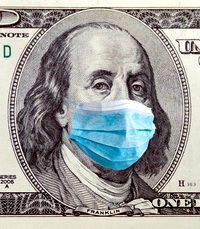
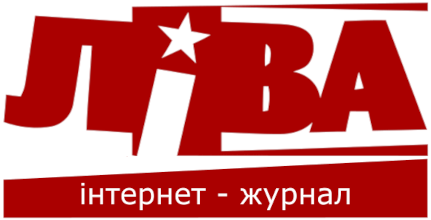










 RSS
RSS

